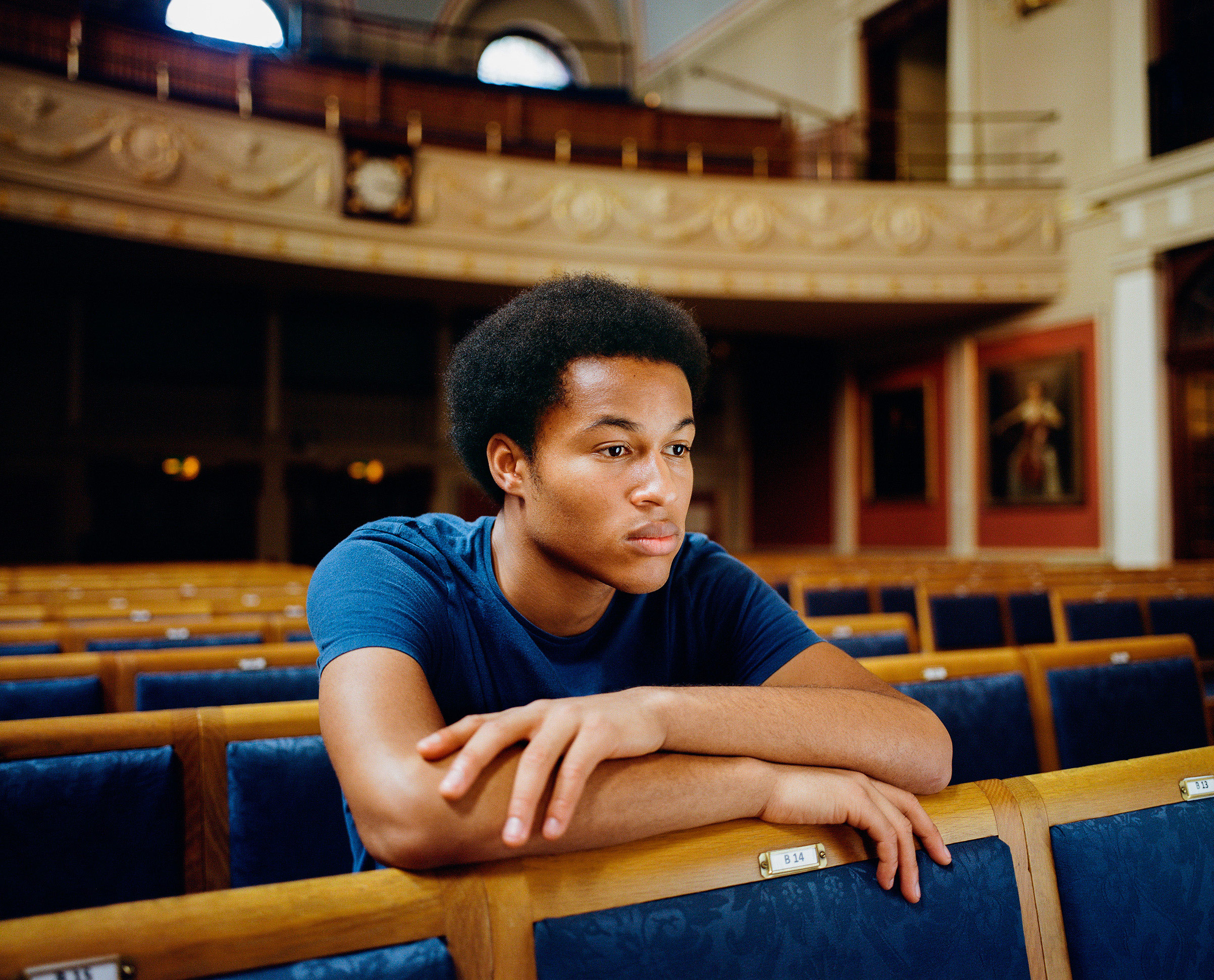It would have been hard for anyone to upstage the bride and groom at the royal wedding in May, but Sheku Kanneh-Mason came close. As Prince Harry and Meghan Markle signed their registry in St. George’s Cathedral, the British cello prodigy stepped forward to play Maria Theresia von Paradis’ Sicilienne. The reception was rapturous, not least online, where #cellobae began trending globally.
The 19-year-old Brit humbly puts the response down to audiences being given something new. “The music itself can appeal to anyone,” he tells TIME. “It’s just a case of people having the chance to hear it or see it.”
For many, Kanneh-Mason is that chance. In 2016, the teenager became the first black musician to win the BBC’s prestigious Young Musician of the Year award. He’s performed twice at the BAFTAs, Britain’s biggest film awards, and this January he released Inspiration, his debut album. After he performed at the royal wedding, Inspiration soared to the top of U.S. iTunes pop chart.
His newfound prominence is an opportunity to show young people of color that they too can aspire to a career in classical music. It’s a strikingly homogenous genre: according to one study, only 16% of England’s arts and culture workforce hails from a black or ethnic minority background, and in the U.S. just 1.8% of orchestral players are black. As far as public perception goes, classical music is stuffy, elitist and white.

But then along comes a guy like Kanneh-Mason, a soft-spoken black teenager with a passion for British soccer team Arsenal, to redefine what the image of classical music could be. “If you’re a young black child and you go to a concert, you would very rarely see someone on stage who looks like you,” he says, speaking to TIME at the Royal Academy of Music’s Duke Hall. Sporting Nikes and an afro, he stands out in the Edwardian theater adorned with portraits of white, cross-legged luminaries. “It’s difficult to see yourself doing that. And that was the case with lots of different arts and sports at one point, but now we see lots of diversity in that, and I think the same is possible with classical music.”
The cellist’s family can take some credit. The third of seven siblings, all of whom are talented musicians, Kanneh-Mason was raised in a quiet suburb of Nottingham, by parents of Sierra Leonean and Antiguan origins. “If you haven’t got the right combination of parental support, financial backing, and a school, it can be quite difficult,” says his father, Stuart Mason. “So I think there’s quite a lot of talent wastage at the moment which is very sad to see.”
Kanneh-Mason stands in a long line of British musicians—soprano Nadine Benjamin, composer Hannah Kendall and double-bass player Chi-chi Nwanoku, among them—whose careers have drawn attention to the issue of representation. Part of the problem is the sheer cost of lessons and musical instruments. Kanneh-Mason is hoping to change that. He has raised $7,800 to fund cello lessons at his old state-run high school, and through British charities like London Music Masters (LMM), he visits schools to promote music education.
“It sounds very reductive to say that a young brown man playing cello on stage can have an impact on perception of classical music, but it absolutely can,” says Robert Adediran, LMM’s director. “Because we’re visual people, and our perceptions are challenged by what we see.”
Kanneh-Mason’s efforts may take years to bear fruit, but it will be worth it, the cellist says. “When I’m performing, my main focus is on delivering the music in the best way that I can,” he tells TIME. “If in doing that I am able to inspire someone to love the music that I love, and to take up an instrument, then that’s a wonderful thing.”
- Donald Trump Is TIME's 2024 Person of the Year
- Why We Chose Trump as Person of the Year
- Is Intermittent Fasting Good or Bad for You?
- The 100 Must-Read Books of 2024
- The 20 Best Christmas TV Episodes
- Column: If Optimism Feels Ridiculous Now, Try Hope
- The Future of Climate Action Is Trade Policy
- Merle Bombardieri Is Helping People Make the Baby Decision